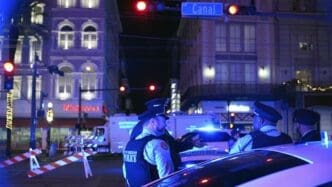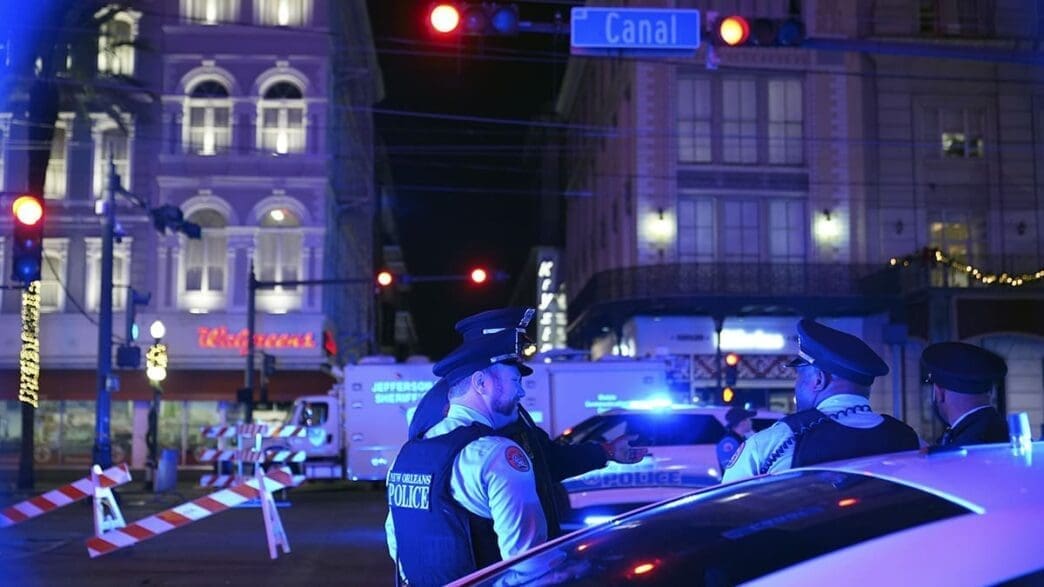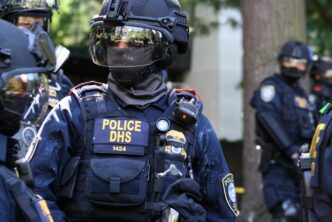Two recent attacks on New Year’s Day — one in New Orleans and another in Las Vegas — have drawn attention to the involvement of individuals with military backgrounds in extremist violence.
In New Orleans, Shamsud-Din Jabbar, a U.S. Army veteran, perpetrated a devastating attack that left 14 dead and many injured. His actions, described as an act of terrorism inspired by the Islamic State, involved using a pickup truck in a deadly rampage. The incident is significant as it underscores the potential danger of individuals with military training executing ideologically driven attacks, particularly those targeting large groups.
According to federal investigators, Jabbar employed a rare explosive compound in two improvised explosive devices (IEDs) he planted before the vehicle assault. This compound has reportedly never been utilized in U.S. or European terror incidents, raising questions about his expertise in bomb-making. Authorities discovered materials for bomb-making both at his rental home in New Orleans and a trailer in Houston. These findings are part of an ongoing investigation by the FBI and ATF.
Meanwhile, in Las Vegas, Matthew Livelsberger, an active U.S. Army Special Forces member, committed suicide in a Tesla Cybertruck filled with explosive materials near the Trump International Hotel. The explosion, which injured seven people, prompted concerns regarding possible political motives, especially given the high-profile location and the connection to Tesla’s CEO, Elon Musk. However, investigators have yet to determine a conclusive motive.
Historical data indicate that while the number of veterans and active service members involved in extremist activities is small, their participation often results in plots with greater potential for mass harm. The Associated Press and START’s research reveal that since 2017, over 480 individuals with military backgrounds have faced accusations of extremist crimes, including involvement in the January 6 Capitol riots.
The risks posed by radicalized service members and veterans have prompted scrutiny over the Pentagon’s response to extremism within its ranks. Despite the military’s efforts to understand and tackle the root causes of such extremism, reports highlight deficiencies such as outdated data and incomplete tracking systems. The call for improved measures is accentuated by the fact that people with military experience have been linked to more lethal attacks.
Kristofer Goldsmith, an Army veteran and head of Task Force Butler Institute, expressed concerns over political hindrances in addressing military extremism. He cited opposition from Congressional Republicans as a significant obstacle to advancement in tackling the issue during President Biden’s administration. Goldsmith also pointed out fears that the incoming administration might downplay the broader spectrum of extremist threats, focusing instead on incidents like the recent New Orleans attack.
This problem is not entirely new. Past attacks by military personnel influenced by extremist ideologies include the 2017 Fort Lauderdale airport shooting and the 2009 Fort Hood shooting. These incidents reflect complex ideological motivations, including jihadist links, although most military-affiliated extremists lean towards far-right ideologies.
The ongoing analysis highlights a critical national security concern—mitigating the risk of extremist acts by individuals with military expertise. It is clear that more robust strategies are needed to address the radicalization risks within the armed forces effectively.
The recent events in New Orleans and Las Vegas underscore a concerning trend of military-affiliated individuals engaging in extremist violence. As investigations continue, there is an urgent need for comprehensive measures to prevent and address the radicalization of service members, ensuring that the military remains a secure and honorable institution.
Source: Nbcmiami







